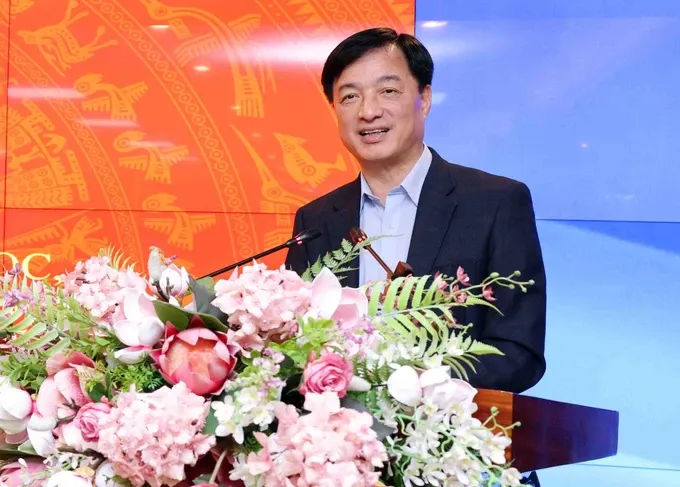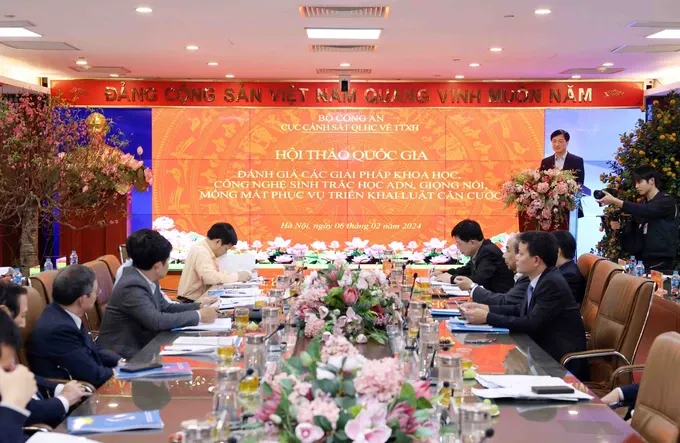
In his speech, Deputy Minister of Public Security Nguyen Duy Ngoc informed that the Identification Law was approved by the National Assembly and will come into effect from July 1, 2024. It contains new regulations on adding biometric information such as AND, iris, and voice into the identification database.
The Deputy Minister affirmed that the implementation of technological utilities for citizens has been synchronously carried out among biometric authentication applications and chip-based utilities on the ID card as well as e-identification. These are supposed to reduce the processing time of administrative procedures and help them become more citizen-friendly.
Like other nations in the world whose national biometric database is being used in citizen management, criminal control, and natural disaster victim locating tasks, Vietnam is trying to gradually follow the step despite various challenges coming from limits in the law and IT infrastructure.
Even though there have been contradictory views on this matter, when the law is approved, the current focus should be the methods to effectively implement that law. During the time to develop the biometric database, the Police Department for Administrative Management of Social Order will continue to collect feedback from the community for necessary adjustments.

In the conference, scientists, managers, and experts in the field carefully discussed such topics as the prioritized subjects of the law (citizens are not forced to enter their biometric information into the database), the compulsory level to apply biometric rules of crime prevention groups, possible information provided by the application, the implementation of the technological solution, the method to collect samples (blood and saliva), the storage time, and the investment measure.
Prof. Ho Tu Bao from the Vietnam Institute for Advanced Study in Mathematics commented that biometrics is the digital side to identify a human being. During the time to implement the Identification Law, it is necessary to carefully collect the samples of each participant.
DNA identification is advantageous thanks to its high precision and impossibility to create a fake version; yet its disadvantage lies in its high cost. Meanwhile, voice identification is more cost-effective and user-friendly, but its weaknesses are the high possibility of faking and the unwanted influence of the language environment. The cost of iris identification is somewhere between the two above, but it needs complex equipment.

Nong Van Hai from the Vietnam Academy of Science and Technology shared that careful consideration should be made as to convenience, security, and operation expenses. Until the effective time of the Identification Law, there should be a detailed plan regarding the resources to carry out the sample collection procedure and the council taking care of ethical issues for that procedure.
He then proposed the use of the state budget and the mobilization of social resources as well as international aids (if available) when adopting this law. He also mentioned the need to study from other countries successfully applying this procedure.
Nguyen Duc Cong from Thong Nhat Hospital said that attaching DNA information into a person’s ID card is merely a solution, mostly to serve crime prevention and control tasks. As each human being has a different host factor and diseases that can affect the gene, he supported gene collection via blood samples, yet added that this solution is rather cost-intensive.
Deputy Director Vu Van Tan of the Police Department for Administrative Management of Social Order informed that from the effective time of the Identification Law on July 1, 2024, theoretically, citizens can request the integration of their DNA information into the chip on their ID card.
Many countries in the world like the US, the UK, China have done this. The Europe Treaty allows the sharing of biometric information voluntarily for the sake of criminal tracking. In the US, the Identification Act has the same content. It is not at all a strange case for Vietnam to include DNA in its Identification Law.
Also, Europe agrees to add 20 genetic loci into the biometric database. Vietnam is developing a similar database with 30 genetic loci.
























